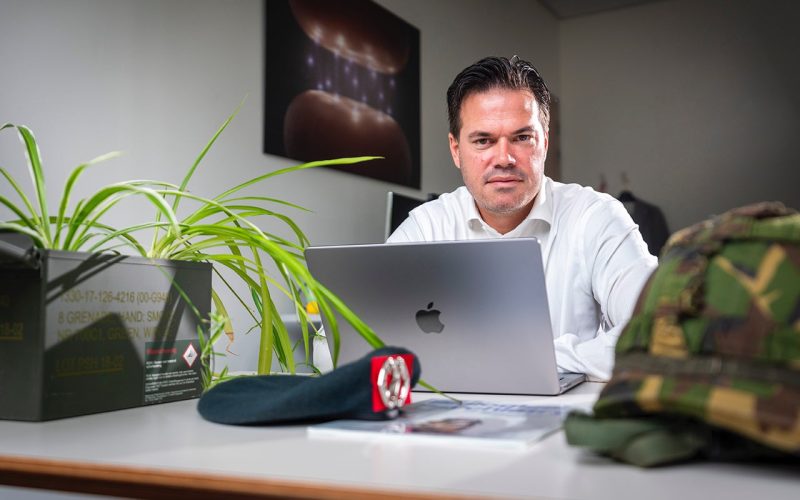UMC Utrecht has appointed Elbert Geuze as professor of Neuroscience of Stress and Trauma, with the career profile of exploratory researcher. Elbert will focus on trauma-related mental disorders, improving treatments for them, and increasing mental performance under stressful conditions. This chair was created through a unique collaboration between UMC Utrecht and the Ministry of Defense.
Elbert Geuze studied chemistry, biochemistry and neuropsychology in Canada and Nijmegen. In 2006, he received his doctorate cum laude in Utrecht on research into the brains of veterans with post-traumatic stress disorder. His research focuses on the neurobiology of stress-related disorders, often in collaboration with the Ministry of Defense. Since 2019, he has led the MGGZ Center of Expertise, focusing on diagnosis, treatment and prevention of stress- and trauma-related complaints.
“Traumatic events are an inevitable part of the human experience,” Elbert explains. “And although the brain’s response to stress and traumatic events is usually adequate, unfortunately these types of events regularly lead to psychological complaints. In particular, professionals who operate in environments with high stress loads and an increased risk of traumatic events, such as within healthcare, police, firefighters or the military, are vulnerable to this.” Through cohort studies of military personnel, multiple vulnerabilities for developing psychological symptoms following stress and trauma have been demonstrated. Elbert: “We can use this knowledge to identify and treat problems early.”
The research within this chair builds on existing work, using technology and methodology (such as virtual reality, brain stimulation and machine learning) to seek new possibilities for optimal treatment of these symptoms. Because optimal mental health is an essential requirement for functioning as a professional in high-risk occupations, Elbert Geuze’s group will also investigate how pharmacological agents and neuromodulation can be used to improve physical and mental performance during exposure to prolonged periods of stress.
“I am grateful for the opportunity this chair provides to bring more attention to people struggling with stress- and trauma-related mental health symptoms,” Elbert said. “Our research aims to contribute directly to the well-being of this target group. It is also an honor for me to train a new generation of scientists and thus further deepen the field of neuroscience of stress and trauma.”
The Ministry of Defense and UMC Utrecht are working to strengthen their collaboration, with the goal of further improving care for (psycho)trauma patients. Part of the collaboration is bringing together initiatives in the areas of scientific research, innovation, education and training and developing joint research lines. By increasing the exchange of knowledge, expertise and experience, and conducting scientific research together, the military and civilian worlds strengthen each other. In this way, the Ministry of Defense and UMC Utrecht want to contribute to a better outcome of care for the military and civilian. The appointment of Elbert Geuze is an important next step in the development of this civil-military collaboration.
Starting with academic year 2023/2024, UMC Utrecht will use six academic career profiles when assessing academics. Elbert Geuze’s career profile is ‘exploratory researcher’. Read more about the profiles here.
